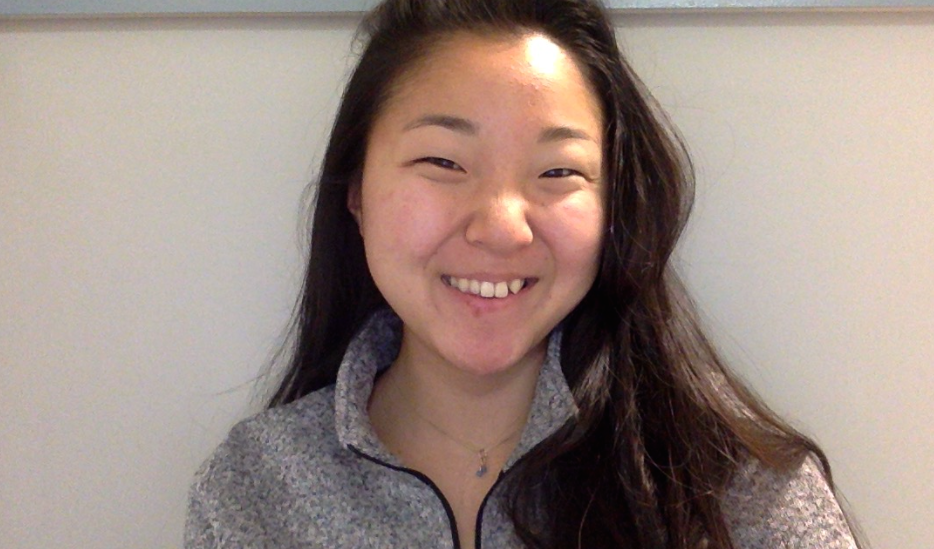Thoughts on Theses: Hapshiba Kwon

Hapshiba Kwon is an English major writing a thesis about the embodied experience. Her advisor is Writer-in-Residence Shayla Lawson.
Q: What is your thesis about? A: My thesis is a work in progress. It’s a creative writing thesis in the English department. It’s going to be about the embodied experience of females, and it will deal with my personal experience as a female with a body. It will explore the relationship between the idea of soul and body, which are traditionally thought of as very separate, especially in terms of language. I will explore how I can use hybrid forms and non-traditional structures to explore what it means to be contained in a body and also relate to other beings with bodies.
Q: How did you come up with this idea for your thesis? A: Most of my inspiration comes from personal experience. At Amherst, we’re taught how to think about and navigate our different identities. Personally, I feel like my identity is composed of fragmented parts, all within one body. I have found that my lived experiences, walking around this world as someone who is both gendered and has a race and holds those different facets is worthy of deep exploration. I want to explore how I, as one whole being, experience identity and embodiment in different ways. A lot of my work will come out of both painful and joyful personal experiences.
Q: Is anyone helping you write this thesis? A: For now I’m just working with my advisor, Shalya Lawson, who is the writer-in-residence. Hopefully I will be talking to some of the professors that I’ve had throughout the years.
Q: What has been your favorite part of the whole process? A: I haven’t done too much work yet, but I’ve really enjoyed being exposed to a lot of different texts from outside traditional literary canons. My advisor has exposed me to a lot of works that I otherwise wouldn’t have read.
Q: What books have you been reading for your thesis? A: I’ve been reading a variety of texts for my thesis, but one that comes to mind and one that I’ve enjoyed reading is called “The Unbearable Lightness of Being” by Milan Kundera. I feel like it provides good commentary on the nature of relationships, like what constitutes a friendship, or something more than a friendship, and things that are traditionally seen or framed as being in opposition to each other, [like] lightness and weight, light and dark. By reading this, I’ve come to understand that these things are less in opposition to each other in that they are contained in the same body, society and world. These are some of the ideas that I think about a lot when I’m thinking about my thesis. It helps me understand the idea of the embodied self because there are many times in which identities can feel fragmented or in opposition to each other but contained within one body. Within the self there are so many schisms and it’s about coming to terms with this and understanding these various identities. I’ve also learned that the soul and body are not as opposed as they are usually framed.
Q: What has been the hardest part of writing your thesis? A: It’s hard not knowing what form my thesis will take in the end and having to talk to people about it even though it is still very much a work in progress. But I think that is also really exciting because what I have now could end up being something totally different. This whole thing will most likely be an avenue of self-discovery.
Q: What advice do you have for other thesis writers? A: It should be an enjoyable process, so I would say just take it in little bits and find times to carve out space to work on it. I think your thesis should have personal significance if you’re going to undertake such a large project. My biggest piece of advice is to ask yourself how your topic relates to how you’re living every day and how it changes how you interact with and view the world and yourself. I think that can make the entire process more meaningful and fruitful.
Q: What are your hopes for the thesis process? A: My hopes for the thesis is that it’s a journey of self-discovery and healing. Hopefully I’ll learn more about myself and the world and that it will be an outlet by which I can explore topics that are interesting to me. I’ll be going through memories — a lot of memories — and challenging and restructuring various parts of texts, and viewing the texts as if they are bodies — like me.





Comments ()